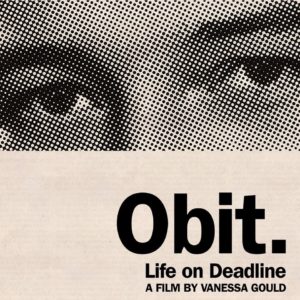Over the past week, the more I tell myself I will not live in fear or succumb to panic, the more I wonder if I’m fooling myself. Such are the unusual times we’re in.
My rule-of-thumb has been to halve whatever heat the press applies to its current hot topic—to recognize it’s in the media’s interests to double a controversial topic’s magnitude to sell more advertising. For the current outbreak of coronavirus, however, dividing by two still yields a large number.
Watching the spread of COVID-19 in near real-time on my computer screen, my thoughts keep returning to a certain class of story, ones that deal with mass disease, plague, and creeping horror.
With social distancing becoming chic and more people staying home nights, here’s a selection of books and movies that offer food for thought for uncertain times:
The Plague
Often read as an allegory of the French Resistance during World War II, it’s just as enriching to read Albert Camus’ classic as a straight accounting of bubonic plague striking an Algerian town.
The novel’s first section reads like a cribbed summary of the past three months. The town government is slow to respond to the first signs of outbreak, and then they attempt to downplay and muzzle news of the disease. The townspeople are initially detached, even sarcastic, about the oncoming epidemic. Doctors hesitate to utter its name. Only when the horror is plain is there a complete lock-down of the city. We haven’t seen food riots or looting—yet—but Camus’ depiction of citizens being shot while escaping quarantine, and paranoia stoking bigotry and violence, naturally makes me wonder which is worse: the disease or its targets.
“A good hour wasted!” the inspector sighed when the door closed behind them. “As you can guess, we’ve other things to think about, what with this fever everybody’s talking of.”
He then asked the doctor if there was any serious danger to the town; Rieux answered that he couldn’t say.
“It must be the weather,” the police officer decided. “That’s what it is.”
What does The Plague depict that we’re not seeing today? Camus’ gallows humor, for one. The San Francisco of thirty years ago would be holding end-of-the-world parties right now, and plague doctors’ masks would be the hot fashion item of the season. Instead, San Francisco went from boom town to ghost town over the course of a single weekend. Camus’ interrogation of God’s will versus nature’s blind force are scarce today too. It appears everyone’s more-or-less agreed on the science behind COVID-19, although conspiracies abound—perhaps our culture’s new religion.
“Well, I know. And I don’t need any post-mortems. I was in China for a good part of my career, and I saw some cases in Paris twenty years ago. Only no one dared to call them by their name on that occasion. The usual taboo, of course; the public mustn’t be alarmed, that would do at all. … ‘It’s unthinkable. Everyone knows it ceased to appear in western Europe.’ Yes, everyone knew that—except the dead men.”
I like to think Camus’ main characters recognized the absurdity of fleas on grungy rats sending an entire city into a locked-down panic. Maybe in the future we’ll have a rounder perspective of the 2019-2020 coronavirus. Not today, apparently.
12 Monkeys
One of my favorite films. In Terry Gilliam’s near future, mankind lives underground after an unnamed virus killed five billion people and made the Earth’s surface uninhabitable. A convict is sent backwards in time not to prevent the near-extinction event, but to gather information about the virus so future scientists may develop a vaccine.
As with The Plague, 12 Monkeys is laden with absurdity and irony even though the subject matter is dead-serious. The ending is ambiguous, but one reading is even more fatalistic than Camus’ novel. “All I see are dead people,” the convict mutters as he peers around a thriving 1990s America.
Then there’s the scene where the viral spread is recalled by counting off the cities it was first detected in, much as we’re talking about Wuhan, Italy, King County, and so forth. The 12 Monkeys virus was communicated quickly due to modern airline travel, which again sounds awfully familiar. Of all the titles in this list, 12 Monkeys hews closest to today’s reality.
Orwell’s war-time diaries
While not strictly about plague or pestilence, Orwell’s diaries of London life during World War II have remarkable currency. Reading his private thoughts during the London blitz are Orwell at his most claustrophobic.
Orwell records the daily despairs overheard in pubs and tobacconists, the griping over the stark wartime rationing, and his own dulled sense that he’s grown accustomed to the sound of airplane gunfire. London’s citizens black out their windows and stay at home fretting over the newspaper and beside the radio. Above all, he writes of his suspicions that government censors were holding back embarrassments on England’s progress in the war—and most likely lying through their teeth, although “there is probably more suppression than downright lying.”
The usual Sunday crowds drifting to and fro, perambulators, cycling clubs, people exercising dogs, knots of young men loitering at street corners, with not an indication in any face or in anything that one can overhear that these people grasp that they are likely to be invaded within a few weeks, though today all the Sunday papers are telling them so. The response to renewed appeals for evacuation of children from London has been very poor. Evidently the reasoning is, “The air raids didn’t happen last time, so they won’t happen this time.”
His diaries ring of today’s self-quarantines, the lines at the supermarkets, the daily sense of uncertainty, and each morning checking the Web knowing the infection numbers will only be rising. Our government is now holding public health meetings in secret. At least our press is free enough to report that much.
There are days Orwell sounds resigned to England being overrun by the Nazis, and there are days when he’s even more apocalyptic. Orwell, ever the Socialist, grimly cheers himself up by predicting the end of the war would trigger a workers’ revolution and the end of capitalism. It’s an unusually millenarianist moment for the author of 1984 and Animal Farm, and one where his predictive powers failed him.
Invasion of the Body Snatchers
The 1956 thriller is a classic of Red Scare film-making. The 1976 remake with Donald Sutherland and Leonard Nimoy is creepier and—improbably—campier. Extraterrestrial spores quietly rain down on Earth to infect humans while they sleep. One by one, humanity is replaced with emotionless, purposeless clones.
The 1956 original is interpreted as either a caution against Communism or anti-Communism, making it the ultimate McCarthy-era open text. The 1976 remake is on several lists of post-Watergate conspiracy thrillers, yet it’s even less politically-charged than the original. As with my suggestion about The Plague, what if both were simply viewed through the lenses of infection and contamination?
When the aliens are perfect clones—when an infected person is outwardly healthy—it’s impossible to know who to be wary of, and so people rely on less reliable and less noble signals to judge unclean. By the middle of Body Snatchers, every major and minor character who comes into the shot leaves you asking, “Are they—?” There’s the awful hesitation these days when people shake hands. There’s the dismalness of watching people scurry away from a blown nose or a sneeze.
Meanwhile, Kevin McCarthy’s plea for everyone to listen and see what’s coming sounds eerily like the health care professionals who warned the public of the coming epidemic, especially those who were censored or warned about spreading rumors:
Paranoia—fatalism—taboo—absurdity. I’m not claiming this list will cheer you up. Perhaps it’s helpful to see people at their best and worst when fear is spreading like a disease. Maybe it’s comforting to know we’re not the first to experience this dread. There’s a light, even if it’s not the end of the tunnel.

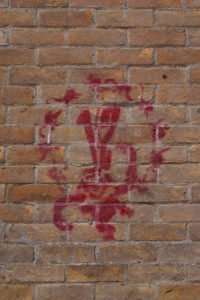
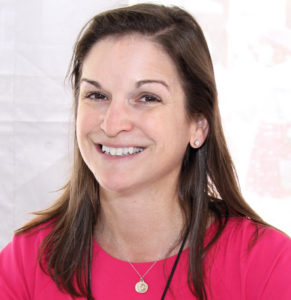
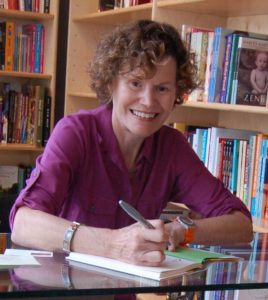
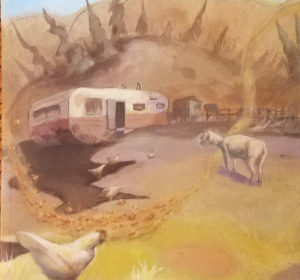
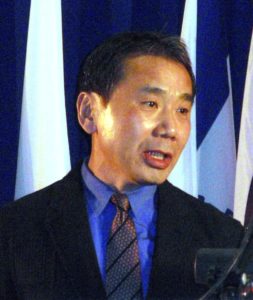
 Originally published at
Originally published at 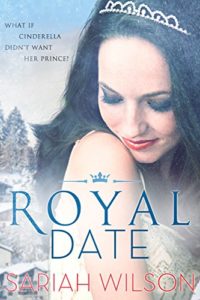
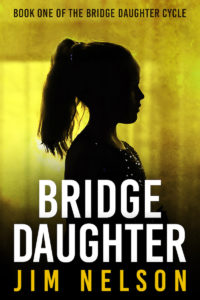
 My retrospective on
My retrospective on 